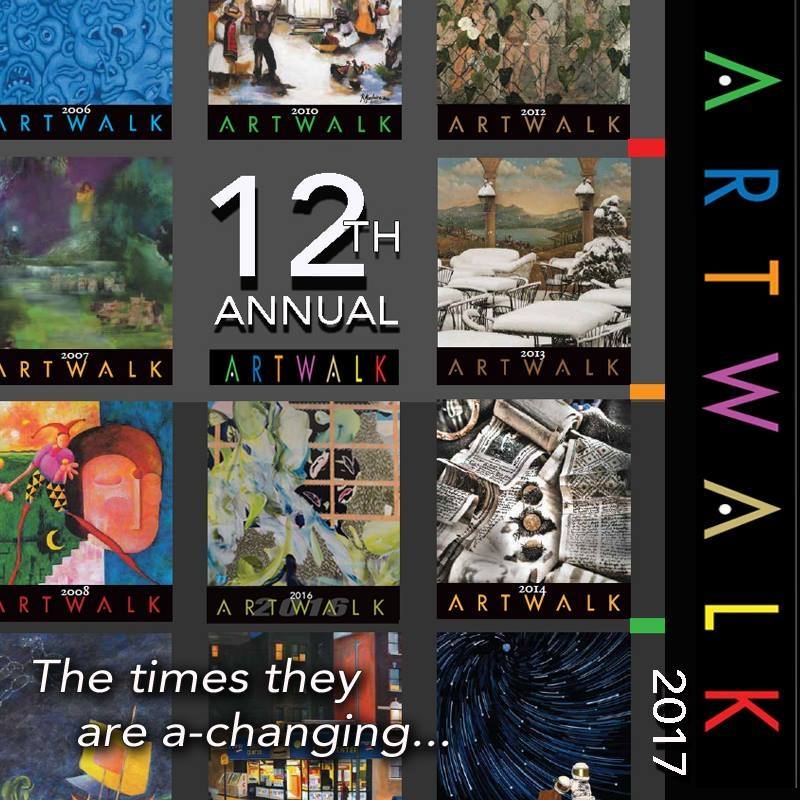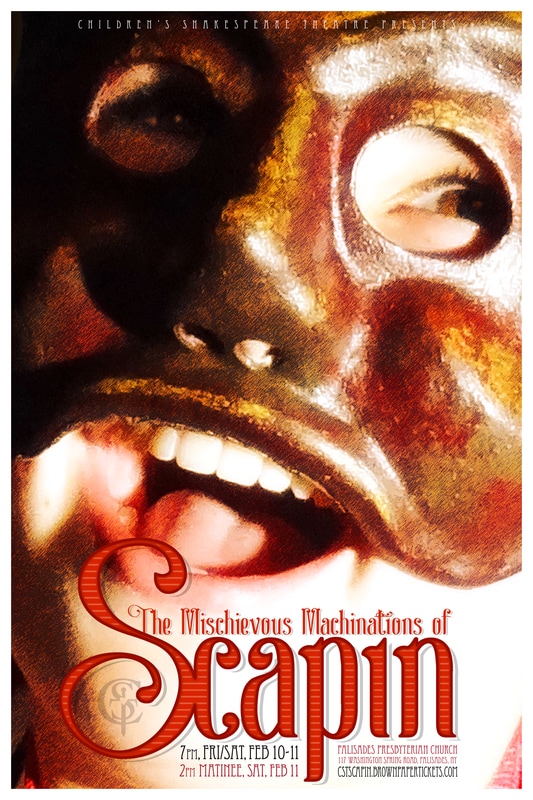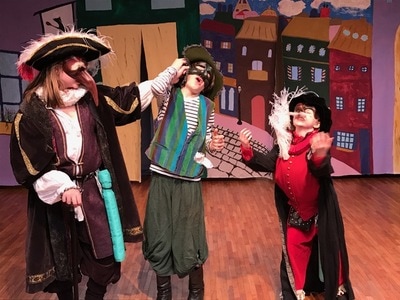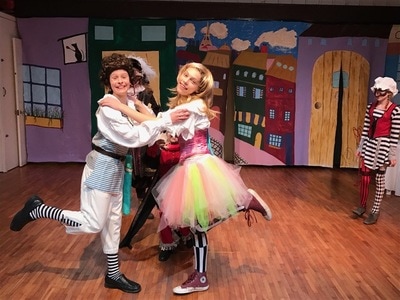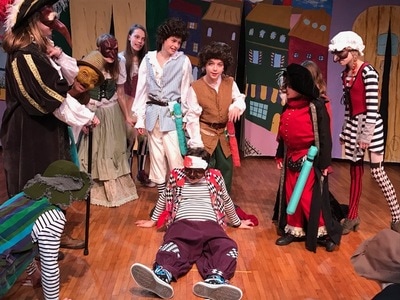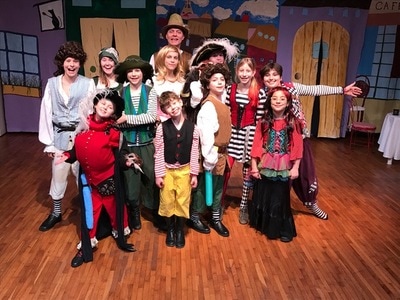Edward Hopper House is pleased to participate in the 2017 Nyack ArtWalk and the 2017 Path Through History Weekend: Friday, June 16 - Sunday, June 18, 2017.
On Friday, June 16, we will have FREE admission to the House all day. We will be open until 8pm, so come see our exhibition, and have a tour of the House with our docents.
On Saturday, June 17, we are pleased to present a production of Moliere's topsy-turvy Commedia dell'Arte "SCAPIN" performed by the Children's Shakespeare Theatre in our garden at 7pm. Admission is free, but donations are appreciated and will help to support both the Edward Hopper House and the Children's Shakespeare Theatre in Rockland.
On Sunday, June 18, we will be offering FREE admission to the House, and invite you to see our exhibition and have a tour of the House with our docents.
On Saturday, June 17, we are pleased to present a production of Moliere's topsy-turvy Commedia dell'Arte "SCAPIN" performed by the Children's Shakespeare Theatre in our garden at 7pm. Admission is free, but donations are appreciated and will help to support both the Edward Hopper House and the Children's Shakespeare Theatre in Rockland.
On Sunday, June 18, we will be offering FREE admission to the House, and invite you to see our exhibition and have a tour of the House with our docents.
SCAPIN
Saturday, June 17, 7PM - CANCELED DUE TO RAIN
We are pleased to present a production of Moliere's topsy-turvy Commedia dell'Arte "Scapin" performed by the Children's Shakespeare Theatre in our garden. Admission is free, but donations are appreciated and will help to support both the Edward Hopper House and the Children's Shakespeare Theatre in Rockland.
|
Special thanks to the 9W Market and The Filling Station for helping to underwrite Scapin at the Edward Hopper House!
|
Synopsis:
Young men in love do foolish things and sometimes they need help from the unlikeliest sources. Octave has gone and married Hyacinthe, a girl he only met while his father, Argante, was away on a business trip. But his father has other plans for him to marry the daughter of Geronte, a wealthy friend of his. Geronte has sent for his daughter who has lived in Taranto with her mother. Octave needs money in case his father disowns him over this marriage, but he finds no help from his own servant, Silvester, so he asks Scapin to come up with a plan. Scapin, servant to Geronte, is known for many tricks he has played on one and all. He tricks Argante out of a purse of money by having Silvester dress up as the big tough brother of the girl Octave has married. The two pretend that the “brother” is searching for Argante to kill him. Argante decides it’s safer to pay this brother off so he can get his son’s marriage annulled. Meanwhile Leander, the son of Geronte, is also in love… with a gypsy. Knowing this will be unacceptable to his father, Leander also needs Scapin’s help to trick Geronte out of some money so that he and his beloved can go live happily ever after somewhere far away. Scapin tells Geronte that his son has been kidnapped by a Turk and that he needs to bring money to ransom him. He gets it, but he’s not satisfied with that and wants to play one last trick on his boss. He pretends that the friends of this Turk are searching for Geronte to kill him. He manages to get Geronte to hide in a sack and then beats him inside the sack in revenge for all the abuse he’s suffered at his hands. In the end, the mysterious daughter from Taranto turns out to be the very girl Octave fell in love with! And the gypsy girl…well, we’ll leave one surprise for the end. Commedia Dell’Arte is an old form of theater which began with traveling troops of masked players in Italy and France. They developed a stable of stock characters – the old doctor/professor, the miserly old man, the young lovers, a variety of tricky servants – and they drew from these to create simple story lines and repeated scenarios. There is always a set of lovers (or two) who are thwarted in their union by a father with other plans, mostly involving money. The beating in the sack is one of a number of iconic action sequences, called “Lazzi” that the players might introduce at any time to liven things up. And they intentionally worked in big, broad strokes with lots of gestures and high drama because they were often playing to audiences who didn’t necessarily speak their language. This non-naturalistic style included backdrops with openings in crazy places. |


